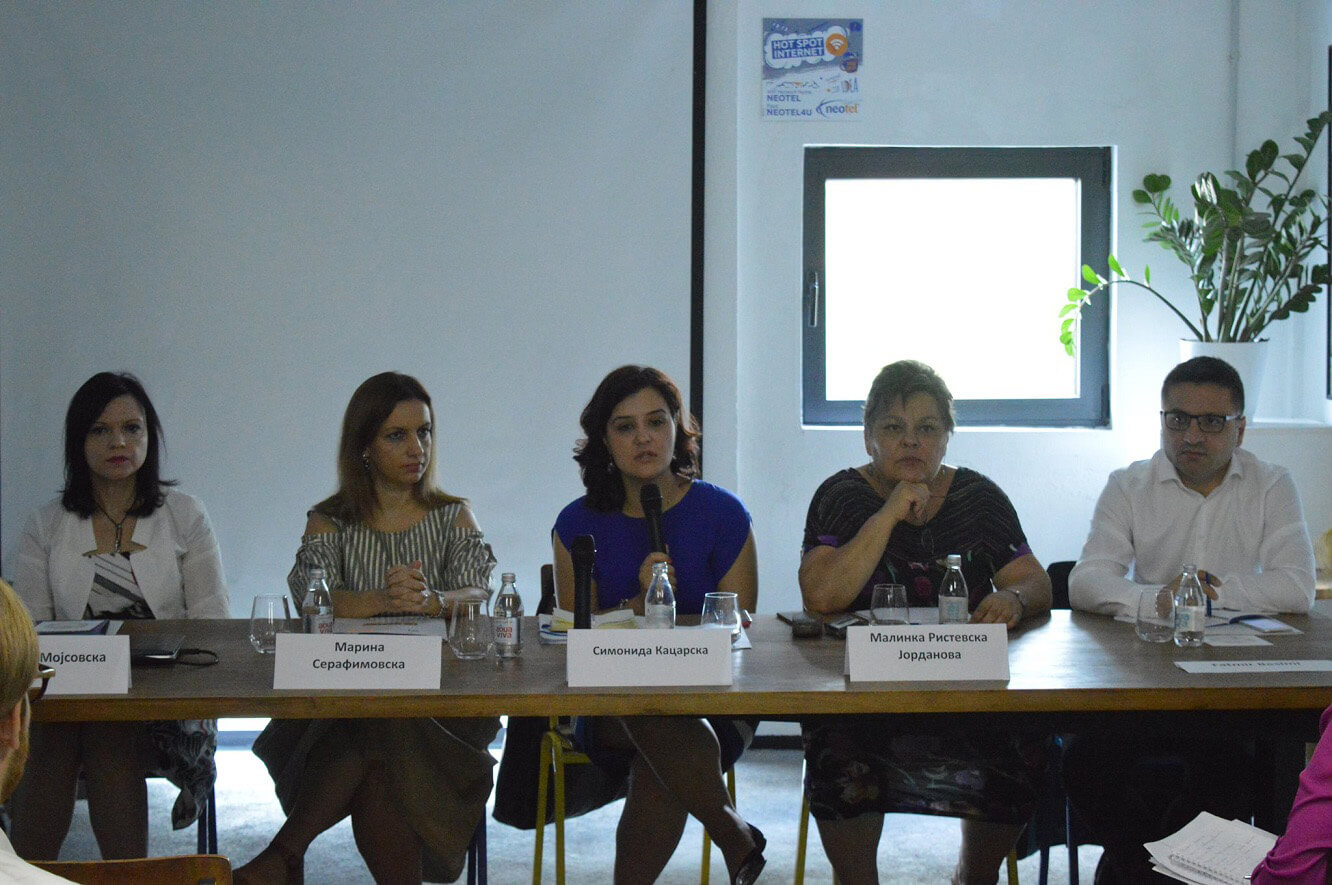The European Policy Institute organized a presentation and discussion on the research “Effects of Stabilisation and Association Agreements and CEFTA2006 on WB6 European integration and regional cooperation: Achievements and ways forward”, with a focus on Macedonia.
The event was opened by EPI’s Director, Dr. Simonida Kacarska. Marina Serafimovska, Economic Adviser in the Embassy of the Federal Republic of Germany in Skopje addressed at the opening, pointing out that Germany is a valuable trade partner for Macedonia, and at the same time, big supporter of the CEFTA countries, in terms of the financial support for projects through GIZ and Deutscher Industrie und Handelskammertag, with the aim to improve the implementation of the agreement and remove the various trade barriers.
The research on the effect of SAA and CEFTA to Macedonia’s regional cooperation and European integration was presented by the authors Dr. Malinka Ristevska – Jordanova, Member of EPI’s Managing Board, and Prof. Dr. Silvana Mojsovska, Professor at the Economic Institute at the University of Ss. Cyrils and Methodius – Skopje. Speaking about the legal aspects of the SAA and CEFTA, Malinka pointed out that there is still a lot to be done regarding the rule of law, but that aspect should definitely not be pursued on the account of integration in the internal market, which is of outmost importance for the economy, which is also part of the “fundamentals first” approach.

Silvana Mojsovska highlighted the economic effects of CEFTA and SAA. “In regards to SAA, Macedonia has over the years managed to significantly increase its exports to the EU and reduce the trade deficit with the EU. The export with the EU is focused to only a few EU member states, giving the opportunity for developing export to other member states. Speaking about CEFTA, it’s interesting to point out that a quarter of the export to CEFTA is consisted of the 10 most exported products (five agricultural and five industrial), which gives the possibility to diversify the products exported to CEFTA countries.”
Speaking at the panel was also Prof. Dr. Fatmir Besimi, a professor at SEEU in Tetovo and a member of EPI’s Council. According to Besimi, there is a need to enhance the competiveness of the Macedonian economy, with regards to the economies of the EU member states. Additionally, he pointed out that the Berlin Process gave impetus for regional cooperation among CEFTA members, but there is a need for improving the connectivity of the WB countries, in order to boost the trade significantly.
After the opening presentations of the panelists, guests from the Ministry of Foreign Affairs, Secretariat for European Affairs, Ministry of Finance, civil society organizations and academia joined in the discussion on the effects of SAA / CEFTA2006 for Macedonia and the ways forward.
You can find the research and the 12 Messages from the WB to the EU below.
—
This event is organized within the project “Effects of the Stabilization and Association Process on European Integration and Regional Cooperation of the WB6” funded by the German Ministry of Foreign Affairs and the Foundation Open Society. The project is implemented by the European Movement in Serbia, in partnership with the Albanian Institute for International Studies, European Policy Institute – Skopje, Riinvest Institute from Kosovo and the European Movement in Montenegro.
- Effects of Stabilisation and Association Agreements and CEFTA2006 on WB6 European integration and regional cooperation: Achievements and ways forward [.pdf 4860KB]
- Twelve proposals for EU enlargement from the Western Balkans [.pdf 451KB]






